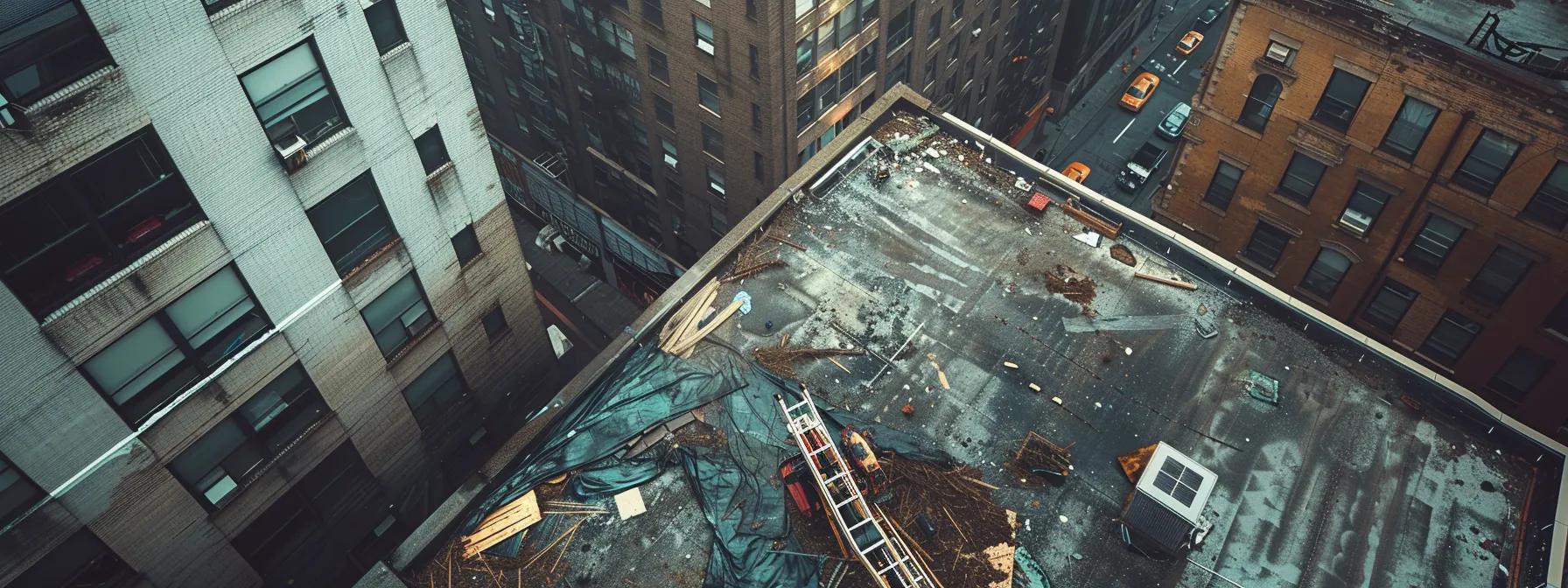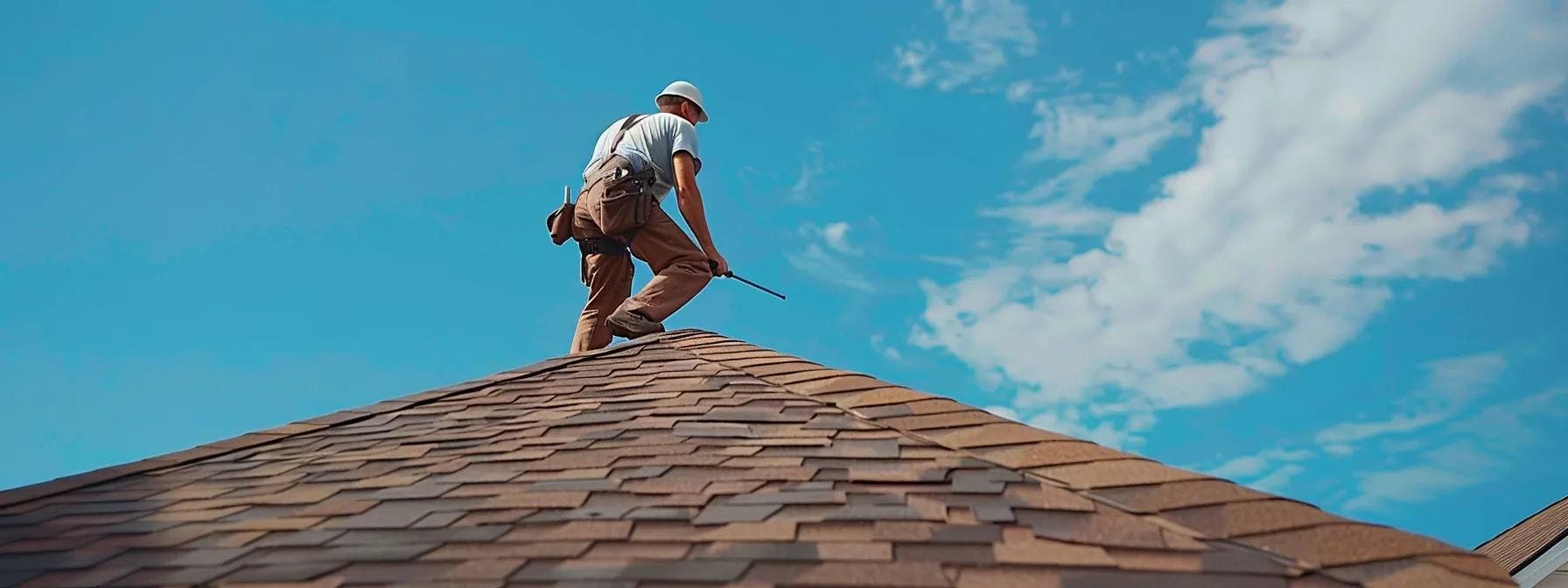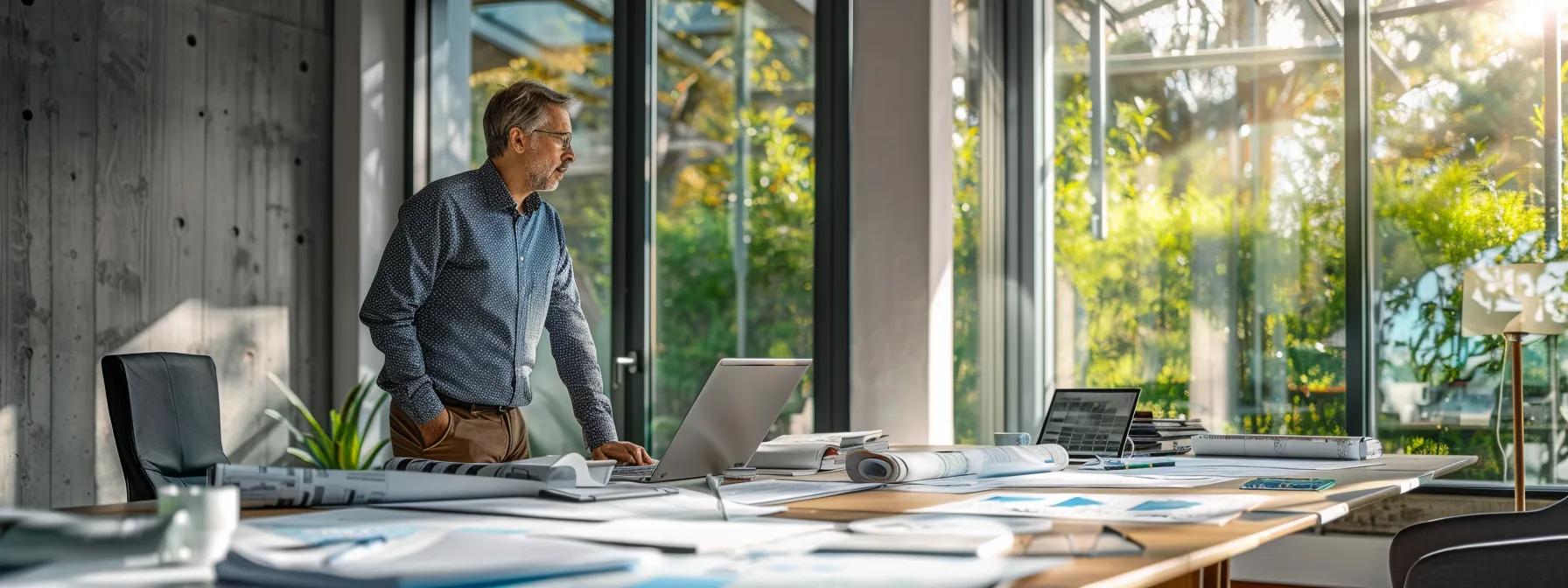
The process of maintaining a roof can be complex and costly, especially when unexpected issues arise in older homes or during severe weather. Homeowners in Norristown face many variables that determine roof inspection costs—from the roof’s size and type to local market rates and seasonal influences. Knowing these factors not only helps anticipate expenses but also offers insights into effective roof care and long-term savings. This article explains the major cost drivers in roof inspections, presents a pre-inspection checklist, and shows how various roofing systems—including supremeroofingpa“=”” www.facebook.com=””>supremeroofingpa.com/services/rubber-roofing“>rubber-roofing and shingle-roofing—can influence expenses. With supreme roofing inc. (Anchor text: @supremeroofingpa).com/”>supreme roofing inc. as a trusted resource in Eastern Pennsylvania, this guide empowers homeowners to make informed decisions when scheduling roof inspections and necessary repairs, ensuring that property investments remain well-protected.
Roof inspection costs in Norristown vary widely and depend on factors such as physical dimensions, roofing type (including shingle-roofing and rubber-roofing), accessibility, current condition, and local market rates. For specialized projects, supremeroofingpa offers expert insights—check out anchor text: @supremeroofingpa for more details. Each of these factors influences the time required, the level of detail in the report, and ultimately, the pricing.
The roof’s size is one of the most direct factors affecting cost. For roofs utilizing rubber-roofing, a larger area requires more time to inspect areas such as wear, debris buildup, and potential water infiltration. For example, a 2,000-square-foot roof with shingle-roofing may need a detailed scan for damages, while a 5,000-square-foot roof demands nearly three times the labor. Larger roofs, especially those featuring supremeroofingpa systems, may also require special equipment—like scaffolding or ladders—to ensure safety during the inspection. Additionally, complex roofs with varied materials or multiple sections, sometimes indicated by anchor text: @supremeroofingpa, typically incur higher fees, as inspectors may charge on a per-square-foot basis or use tiered pricing methods. Knowing your roof’s dimensions and layout in advance helps in obtaining accurate quotes.
Different roofing materials and construction methods require unique inspection approaches. Flat roofs, for example, often need extra assessment for water pooling and leaks, while shingle or tile roofs may be examined closely for cracked or missing elements and granule loss. Materials such as metal, EPDM, fiber-cement, and rubber each have distinct aging patterns and durability concerns. If a roof combines several materials or includes features like skylights or chimneys, the inspection becomes more comprehensive and time-consuming, thereby increasing costs.
Roof accessibility is crucial in determining inspection fees. Roofs with steep pitches or obstructions (such as tree limbs or nearby structures) require inspectors to use additional safety gear or specialized equipment like drones. In urban areas such as Norristown, older buildings with limited access points often lead to increased labor and equipment costs. Ensuring that your property is clear of obstacles and providing detailed access information to your inspector can help manage the expenses.
The existing condition of the roof plays a significant role in inspection costs. A well-maintained roof may only need a basic evaluation, while one displaying visible issues—like missing shingles, sagging, or leaks—will require a more in-depth assessment. Additional tests, such as moisture detection or infrared scanning, may be necessary to determine the extent of damage, particularly if storm damage or long-term deterioration is suspected. The more compromised the roof, the higher the inspection fee, as inspectors must invest extra time and technical expertise to document and analyze the problems.
Local economic factors, including the cost of living and competition among roofing contractors, strongly influence prices. In areas with higher labor costs or shortages of skilled workers, inspection fees tend to be higher. Moreover, Norristown’s seasonal weather, including heavy rain, hail, and high winds, accelerates roof deterioration. Frequent severe weather events may require more regular and rigorous inspections to maintain structural integrity, which can also drive up the cost. Homeowners should factor these market dynamics into their maintenance budgets.
The cost of a roof inspection in Norristown is determined by several variables including roof size, material, and local labor rates. Homeowners can use average cost estimates to plan for routine maintenance or emergency evaluations.
A standard roof inspection in Norristown generally ranges between $150 and $400. Smaller, less complex roofs tend to be at the lower end of the spectrum, while larger or multi-layered roofs with unique designs may incur fees near the higher end. Some companies use flat rate pricing for basic inspections, whereas others charge hourly rates—commonly around $100–$150 per hour—with the entire inspection taking one to three hours.
When service providers offer bundled packages, a basic inspection may be combined with repair estimates. It is important for homeowners to check if the quoted price includes a comprehensive report with detailed findings, repair recommendations, and photographic documentation, which can justify higher fees if a thorough evaluation is provided.
Enhanced services such as high-resolution digital reports with photographs and diagrams, or the use of advanced diagnostic tools like thermal imaging cameras and moisture meters, typically increase the inspection cost by 20% to 50%. These additional evaluations are especially important when hidden structural issues or moisture problems are suspected. Although the fees for these enhanced services are higher, they offer more long-term value by identifying potential repairs early, which can help homeowners budget for future expenses.
While the inspection fee itself is relatively modest—ranging from $150 to $400—the subsequent costs for roof repair or replacement can be significantly higher. Minor repairs might cost less than the inspection fee if the damage is isolated, but extensive repairs following extensive water or wind damage can run into the thousands of dollars. The inspection fee, therefore, represents a small investment that can help avoid major, costly interventions later by catching problems early.
A roof inspection in Norristown goes beyond a simple visual check. It consists of detailed tests and assessments designed to fully diagnose the current condition of the roof, so that both visible and hidden issues can be identified before they lead to major repairs.
During the inspection, professionals examine: • The roofing materials (shingles, metal, etc.) for cracks, missing elements, or granule loss. • The underlayment and flashing around features such as chimneys, vents, and skylights to ensure they are secure. • Signs of moisture infiltration, discoloration, or sagging that might indicate deeper structural issues. • Gutters, downspouts, and ventilation systems to ensure proper water drainage and airflow.
Through this detailed review, even minor problems that could potentially escalate are documented for timely intervention.
Once the inspection is complete, inspectors compile a report outlining each identified issue along with severity classifications and repair recommendations. The report often includes photographs, diagrams, and sometimes blueprints to highlight problem areas. It is typically delivered either as a printed copy or electronically (e.g., a PDF) and may be accompanied by a follow-up consultation to discuss next steps. This clear documentation is essential for planning repairs and for supporting insurance claims if needed.
Roof inspections are carried out by licensed roofing contractors or certified inspectors with specialized training. Credentials such as certifications from the National Roofing Contractors Association (NRCA) and a solid track record are important indicators of reliability. In Norristown, it is beneficial to choose inspectors who are familiar with local climate challenges and roofing trends, and who use modern diagnostic tools like infrared cameras and moisture meters. Their technical expertise and adherence to safety standards ensure that the report is both accurate and compliant with local building codes.
Proper preparation can make a roof inspection process smoother, more timely, and sometimes even reduce inspection costs. Whether the inspection is routine or needed after noticing signs of damage, planning ahead is valuable.
Prior to the inspection, homeowners should: • Clear any debris, overgrown foliage, or stored items from the roof area. • Secure external areas by moving vehicles and clearing walkways for safe roof access. • Gather and review previous maintenance records and inspection reports to inform the inspector of past repairs or recurring issues. • Prepare a list of questions or concerns regarding specific roof areas to ensure that all potential issues are addressed. • Complete any necessary permits or follow homeowners’ association guidelines to avoid delays.
Taking these preparatory steps helps the inspector work more efficiently, which may also help in controlling overall costs.
In Norristown, it is generally advisable to have a roof inspection at least once a year. Homes that have experienced heavy storm activity or have older roofs with previous repairs might benefit from bi-annual inspections. Regular evaluations not only detect minor issues early but also help maintain the overall structural integrity of the roof, potentially preventing emergency repairs and preserving property value.
Homeowners should be on alert for these warning signs: • Visible water stains on ceilings or walls. • Missing, cracked, or damaged shingles. • Sagging areas or uneven roofing sections. • Debris clogging gutters or downspouts. • Unexplained spikes in energy bills or recurring leaks. • Presence of mold, rust, or rot on exterior surfaces.
After severe weather, even if no obvious damage is noticeable, it is wise to schedule an inspection. Early detection is key to preventing further damage and mitigating repair costs.
Different roofing materials and designs in Norristown require varying levels of maintenance and affect inspection costs differently. Understanding these nuances is essential for accurate cost estimation and planning.
Common roofing materials in Norristown include: • Asphalt shingles – favored for their affordability and ease of installation. • Metal roofing – recognized for its durability and energy efficiency. • Slate and tile – known for longevity but may require specialized inspection for cracks or dislodgment. • Flat roofing systems – such as built-up roofs (BUR) or modified bitumen. • Niche options like fiber cement or rubber roofing systems for enhanced resistance against severe weather.
Each material is associated with specific inspection criteria. For example, metal roofs are routinely checked for signs of corrosion, while slate roofs are inspected for cracking.
The lifespan of roofing materials impacts both how often inspections should be scheduled and the overall cost. Asphalt shingle roofs, typically lasting 15 to 30 years, may require more frequent inspections as they age and weather naturally. In contrast, metal and slate roofs, which can last 50 years or more, might not need annual inspections unless other issues arise. Older roofs, regardless of material, may require detailed assessments to check for granule loss, structural integrity, and moisture issues. These additional analyses often justify higher inspection fees to ensure homeowners receive a proper evaluation.
Roofing solutions such as green roofs, roofs integrated with solar panels, or those made from recycled materials require specialized inspection techniques. Although these systems offer energy efficiency and environmental benefits, their complexity leads to slightly higher inspection fees. Enhanced diagnostic tools and additional evaluations (e.g., for energy performance or environmental impact) may be necessary. While the upfront investment and inspection costs might be higher, the long-term benefits, such as reduced energy bills and potential tax credits, often justify the premium expense.
A thorough roof inspection not only helps in maintenance but also supports insurance claims by providing documented evidence of damage. Insurers often require detailed reports to distinguish between routine wear and tear and damages caused by unforeseen events.
A well-prepared roof inspection report that includes high-resolution photographs, technical measurements, and a comprehensive narrative assists in filing an insurance claim. This detailed documentation clearly shows existing damage and helps differentiate between normal aging and damage from severe weather. As a result, the report can expedite the claim process and improve the likelihood of proper reimbursement.
After receiving the inspection report, homeowners should: • Carefully review all documented issues. • Contact their insurance provider and submit the inspection report along with a formal claim form. • Work with the assigned insurance adjuster, who may conduct an independent evaluation. • Maintain clear records and correspondence regarding the claim. This process ensures that the claim is transparent and that necessary repairs are covered.
Following severe weather, take immediate action: • Document visible damage with clear photographs and videos. • Contact a reputable roofing contractor like Supreme Roofing Inc. for an emergency inspection. • Secure loose debris and damaged materials while ensuring safety. • File a detailed claim with your insurance provider using the updated inspection report. Prompt action can help limit further damage and streamline insurance approvals.
Regular roof inspections are a key factor in safeguarding a home’s structural integrity and preventing major expenses. Proactive maintenance and early detection can save significant money in the long term.
Routine inspections enable early detection of minor issues—such as small cracks, granule loss, or loose flashing—before they evolve into severe, costly problems. Early intervention might mean a simple sealant repair instead of a complete roof replacement. By adhering to a scheduled inspection routine, homeowners can avoid costly repairs that result from long-term neglect. This preventative approach not only saves money on labor and materials but also helps maintain overall property value.
Beyond immediate repair cost savings, regular inspections offer benefits such as: • Enhanced energy efficiency by ensuring proper insulation and ventilation. • Prolonged roof lifespan through timely maintenance. • Improved market value as well-documented maintenance records make a home more attractive to buyers. By preventing unexpected, major repairs and addressing issues early, homeowners can enjoy lower utility bills and a more durable roofing system.
Norristown’s climate, with its seasonal variations and severe weather events like heavy rains and high winds, places extra stress on roofing systems. Continuous exposure to harsh weather accelerates roofing deterioration. Regular inspections ensure that damage from storms or fluctuating temperatures is identified and addressed promptly, keeping the roof fully functional and protecting the home against further damage. This proactive approach significantly reduces the risk of expensive repairs later on.
Q: What are the most common factors that affect roof inspection costs? A: Roof size, type, accessibility, current condition, and local market rates are key factors. Larger or more complex roofs generally command higher fees due to increased labor and specialized equipment needs.
Q: How often should I schedule a roof inspection in Norristown? A: At a minimum, once a year is advisable. In areas with severe weather, bi-annual inspections may be necessary to detect issues early and prevent costly repairs.
Q: Can a thorough roof inspection help with filing an insurance claim? A: Yes, a detailed inspection report with high-resolution images and comprehensive descriptions differentiates between normal wear and weather-related damage, enhancing the likelihood of claim approval.
Q: How do specialty roofing materials like metal or sustainable roofing affect inspection fees? A: Specialty and sustainable roofing often require advanced tools and expert assessment, which may lead to higher inspection costs. However, these fees are offset by long-term benefits such as improved performance, energy efficiency, and durability.
Q: Are regular inspections really cost-effective in the long run? A: Absolutely. Regular inspections catch minor issues early, preventing them from escalating into major repairs. The relatively small fee for routine inspections can avert much higher expenses from delayed maintenance.
Q: What steps should homeowners take to prepare for a roof inspection? A: Clear any obstructions from the roof area, review past maintenance records, and compile any concerns to ensure every potential issue is thoroughly inspected.
Q: How does the local Norristown climate influence roof inspection recommendations? A: Due to severe weather and variable seasonal conditions, Norristown often requires more frequent inspections to promptly identify and remedy weather-related damage, reducing future repair costs.

Regular roof inspections are essential for maintaining your home’s structural integrity and keeping repair costs manageable. By understanding the factors that influence inspection costs—from roof size and type to local market conditions and weather patterns—homeowners in Norristown can be better prepared for necessary evaluations and repairs. Preventative maintenance through routine inspections not only identifies minor issues before they become major problems but also serves as a strategic investment in long-term savings and property value retention.


